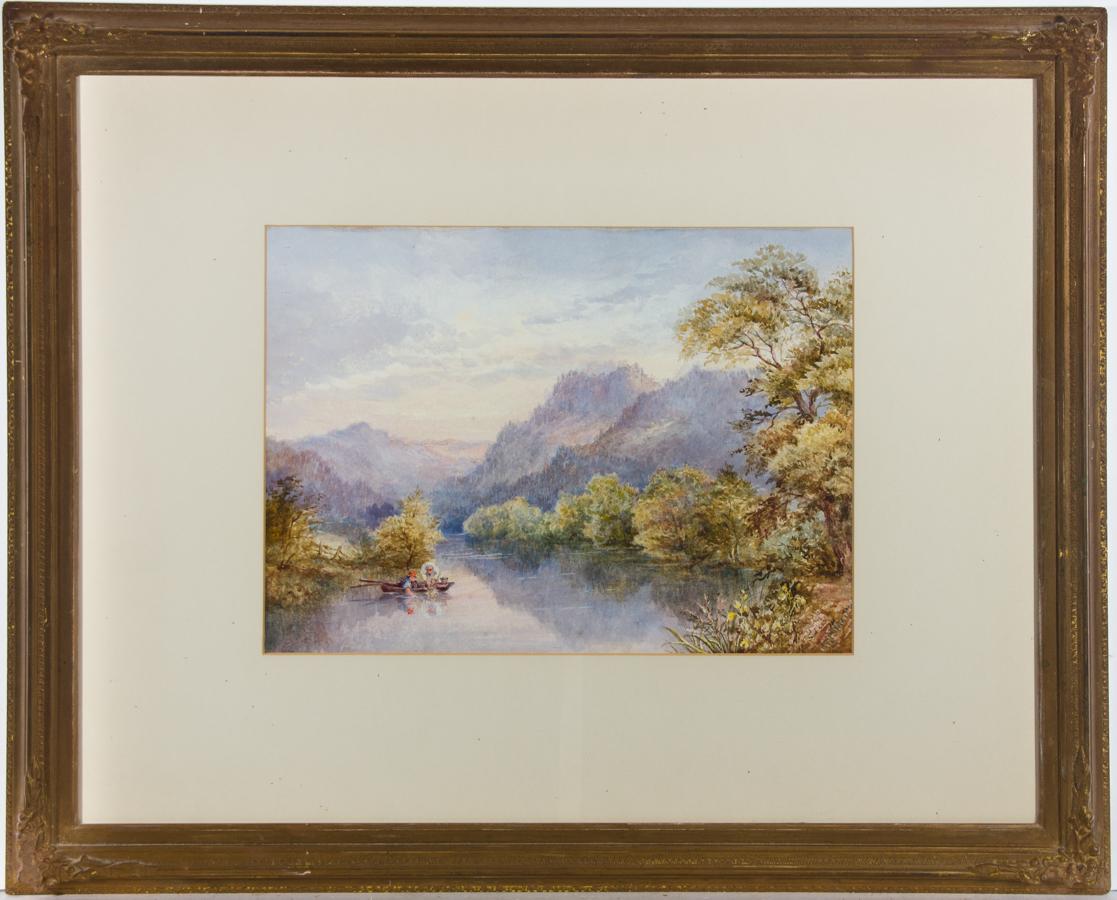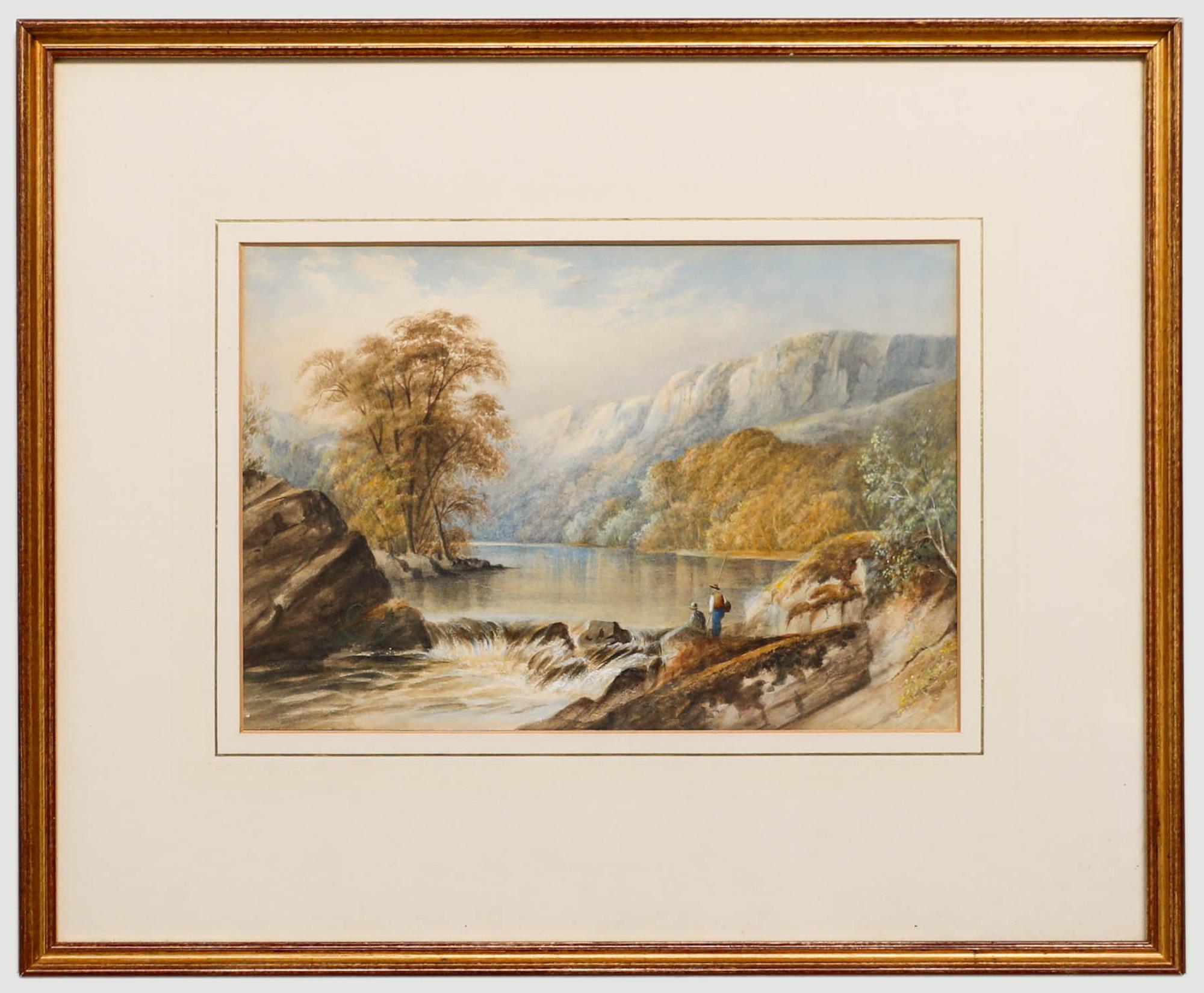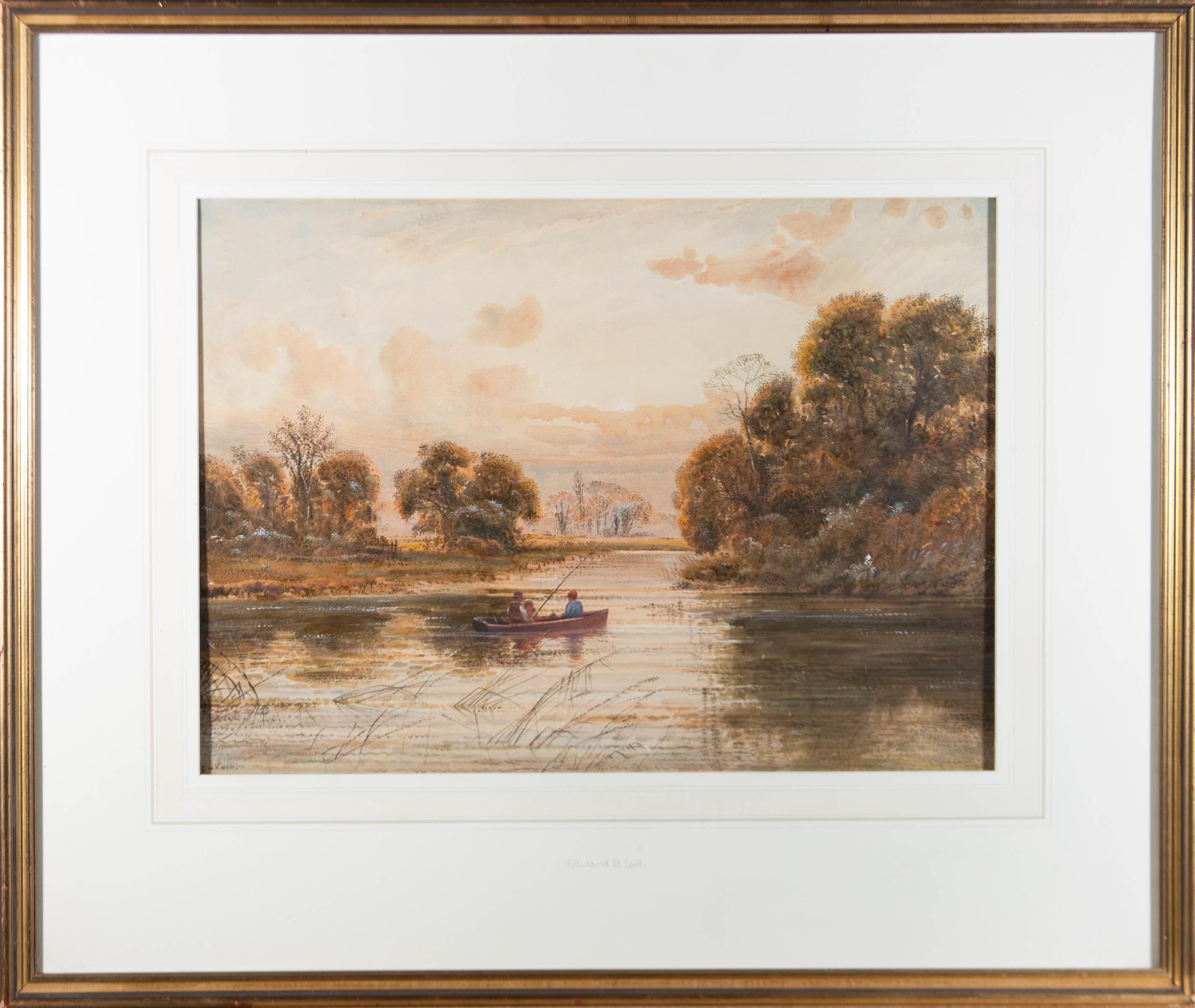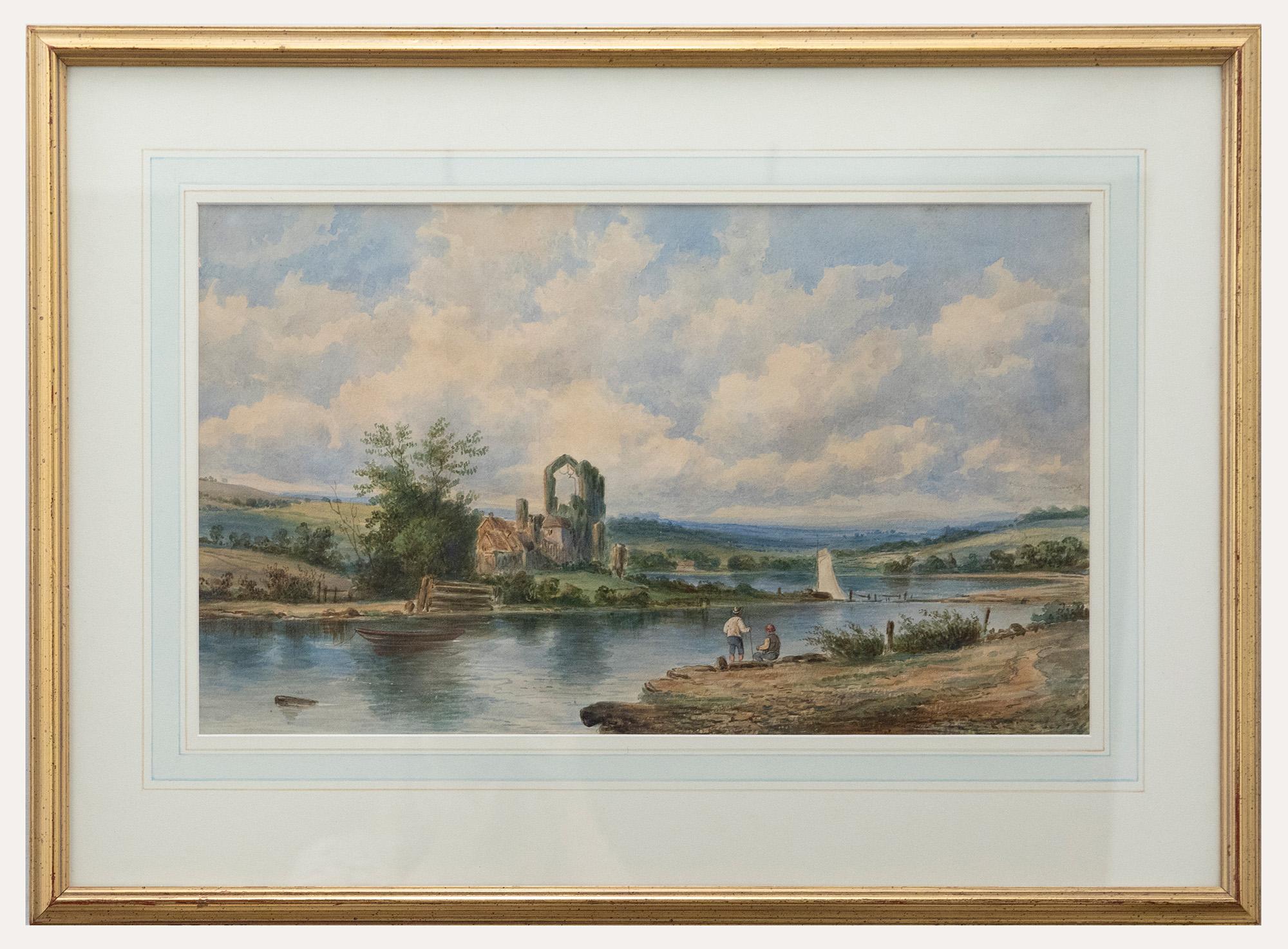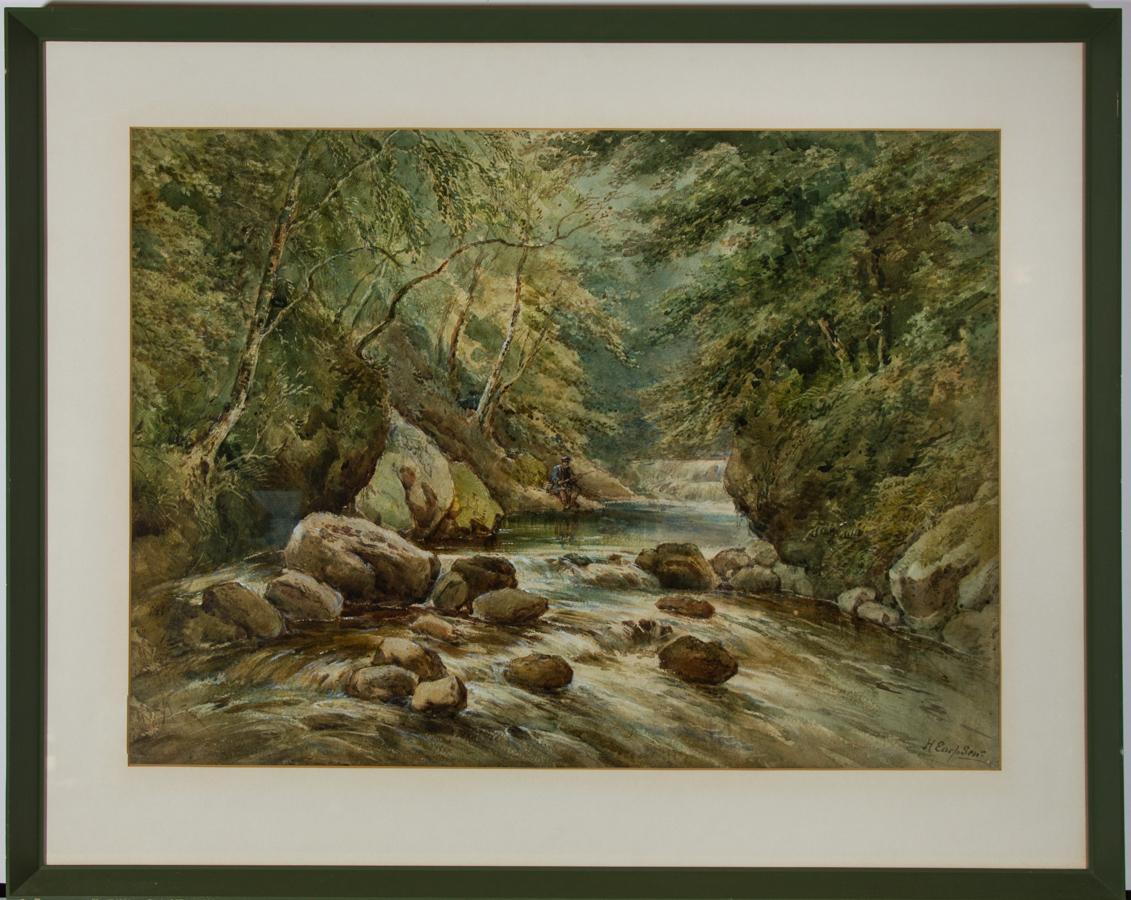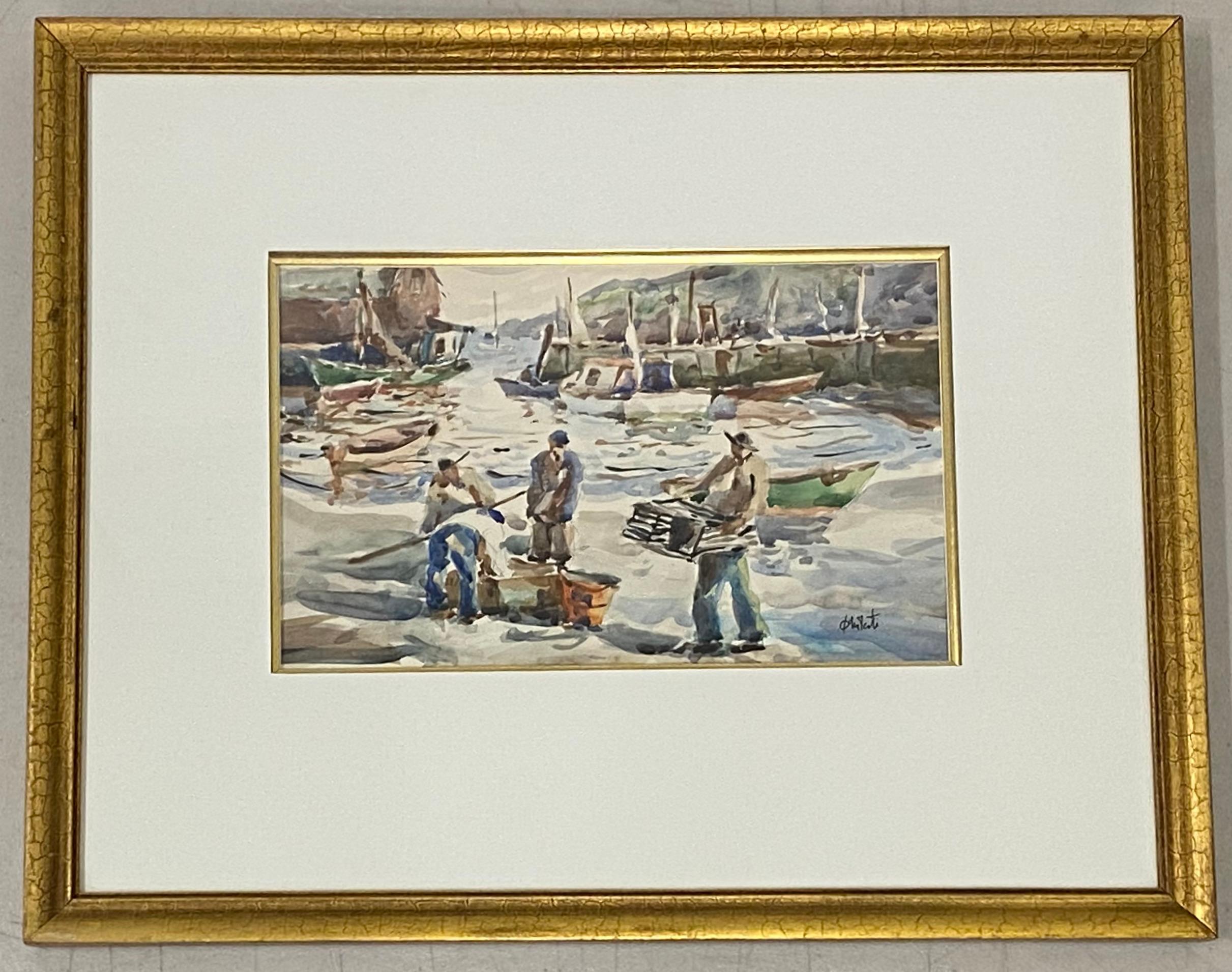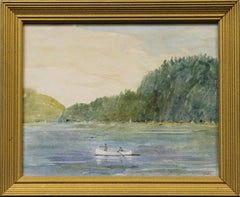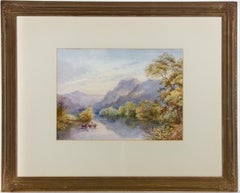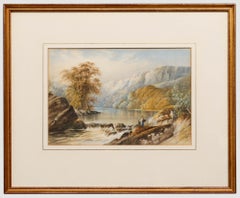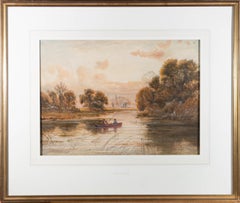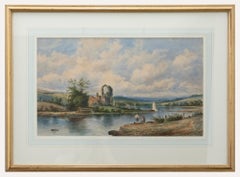Items Similar to Two Anglers On A Riverbed Watercolour & Gouache by Graham Smith
Want more images or videos?
Request additional images or videos from the seller
1 of 11
Graham SmithTwo Anglers On A Riverbed Watercolour & Gouache by Graham Smith
$2,400
£1,823.19
€2,099.40
CA$3,433.44
A$3,766.15
CHF 1,942.06
MX$44,982.98
NOK 24,631.29
SEK 23,106.94
DKK 15,688.74
About the Item
Art Sz: 14 1/2"H x 21 1/2"W
Frame Sz: 22 1/4"H x 28 1/2"W
Signed Lower Left In French Mat
- Creator:Graham Smith
- Dimensions:Height: 22.25 in (56.52 cm)Width: 28.5 in (72.39 cm)
- Medium:
- Period:
- Condition:
- Gallery Location:Bristol, CT
- Reference Number:Seller: 391211stDibs: LU1260113616812
About the Seller
4.8
Vetted Professional Seller
Every seller passes strict standards for authenticity and reliability
Established in 2000
1stDibs seller since 2019
131 sales on 1stDibs
Typical response time: 1 hour
- ShippingRetrieving quote...Shipping from: Bristol, CT
- Return Policy
Authenticity Guarantee
In the unlikely event there’s an issue with an item’s authenticity, contact us within 1 year for a full refund. DetailsMoney-Back Guarantee
If your item is not as described, is damaged in transit, or does not arrive, contact us within 7 days for a full refund. Details24-Hour Cancellation
You have a 24-hour grace period in which to reconsider your purchase, with no questions asked.Vetted Professional Sellers
Our world-class sellers must adhere to strict standards for service and quality, maintaining the integrity of our listings.Price-Match Guarantee
If you find that a seller listed the same item for a lower price elsewhere, we’ll match it.Trusted Global Delivery
Our best-in-class carrier network provides specialized shipping options worldwide, including custom delivery.More From This Seller
View All"Fishermen On Great Sacandaga Lake" Watercolor by B.M. Kremitske
Located in Bristol, CT
Classic watercolor of two fishermen in a canoe on Great Sacandaga Lake in the Adirondacks
Signed: B.M. K(remitske) LR
Art Sz: 7 3/4"H x 9 3/4"W
Frame Sz: 9 3/4"H x 11 3/4"W
Category
20th Century Drawings and Watercolor Paintings
Materials
Watercolor
"Gaffing A Fish On The Susquehanna River" Watercolor by B.M. Kremitske
Located in Bristol, CT
Classic watercolor signed BMK (LR) by B.M. Kremitske depicting an angler gaffing a fish on the Susquehanna River
Art Sz: 6 3/4"H x 5 1/2"W
Frame Sz: 12"H x 10 3/4"W
Category
20th Century Drawings and Watercolor Paintings
Materials
Watercolor
"Fisherman On A Lake" 1978 by Geneva Litchfield
Located in Bristol, CT
Art Sz: 15 3/4"H x 19 1/2"W
Frame Sz: 19"H x 23"W
Acrylic on Canvas
Category
1970s Animal Paintings
Materials
Canvas, Acrylic
"Atlantic Salmon Fishing" by Ogden M Pleissner
Located in Bristol, CT
Published by The Sporting Gallery New York
and Frost & Reed London
Printed in Germany
Pencil Signed (LR)
Blind Stamp (LL)
Art Sz: 16"H x 24 1/4"W
Frame Sz: 29 5/8"H x 36 1/2"W
Category
1930s Landscape Paintings
Materials
Lithograph
"7 Wet Trout Flies" 1997 Watercolour by (British, Harry Spencer)
Located in Bristol, CT
Art Sz: 3"H x 11 3/4"W
Frame Sz: 9 3/8"H x 18"W
Silver Butcher/ Cinnamon/ Peter Ross/ Invicta/ Teal, Blue & Silver/ Mallard & Claret
Category
1990s Drawings and Watercolor Paintings
Materials
Watercolor
Fly Fisherman With Caught Trout
Located in Bristol, CT
Charming circa 1960's watercolour of a trout angler in a birdseye maple frame
Image Sz: 5-5/8"H x 3.25"W
Frame Sz: 10.75"H x 8.25"W
Category
Mid-20th Century Animal Drawings and Watercolors
Materials
Watercolor
You May Also Like
M. F. Thomas - Signed & Framed 1908 Watercolour, Fishing In The River
Located in Corsham, GB
A very fine watercolour by the artist M. F. Thomas, depicting a small boat with two figures fishing in the river in Zlarin, Croatia. The artist has employed a delicate and considered...
Category
20th Century Figurative Drawings and Watercolors
Materials
Watercolor
$459 Sale Price
20% Off
Attrib. Cornelius Pearson (1805-1891) - Watercolour, Two fishermen by a Weir
Located in Corsham, GB
A charming 19th century watercolour with body color, attributed to the listed British artist Cornelius Pearson (1805-1891). Two fishermen by a weir with sublime mountain vista in the...
Category
19th Century Landscape Drawings and Watercolors
Materials
Watercolor
$290 Sale Price
20% Off
Edward Beecham Lait - Late 19th Century Watercolour, A Tranquil Day's Fishing
Located in Corsham, GB
A finely painted watercolour depiction of a river scene with figures in a small boat. The artist's delicate brushstrokes capture the picturesque feel of this rural scene. Well presen...
Category
19th Century Landscape Drawings and Watercolors
Materials
Watercolor
Mid 19th Century Watercolour - Fishing by the Abbey Ruins
Located in Corsham, GB
A fine mid 19th century watercolour study depicting two anglers on the grassy verge of a lake. Abbey ruins sit on the far side of the lake standing tall before rolling countryside. U...
Category
Mid-19th Century Landscape Drawings and Watercolors
Materials
Watercolor
$320 Sale Price
20% Off
Henry Earp Senior (1831-1914) - Mid 20th Century Watercolour, Fishing in a Wood
Located in Corsham, GB
A highly accomplished and confident watercolour of considerable size.The painting shows a man (possibly Scottish judging by his attire) fishing by a river in a sun dappled wood. The ...
Category
20th Century Landscape Drawings and Watercolors
Materials
Watercolor
John Chetcuti "Fishermen" Original Watercolor c.1950
By John Chetcuti
Located in San Francisco, CA
John Chetcuti "Fishermen" Original Watercolor c.1950
Watercolor dimensions 11" wide x 7" high
The frame measures 18.25" wide x 14.5" high
Signed in the lower right corner
Good vi...
Category
Mid-20th Century Impressionist Landscape Drawings and Watercolors
Materials
Watercolor
More Ways To Browse
Graham Smith
Pen And Ink Drawings With Color
Watercolor Boats Painting
Male Nude Painting
Study Nudes Painting
Nude Posing
Still Life Watercolor Flowers
Ink And Wash Landscape Painting
20th Century Japanese Watercolor Painting
Architecture Watercolor
Botanical Watercolor
Mid Century Charcoal Drawings
French Pencil Drawing
Large Watercolor Paintings
Modernist Watercolor
Midcentury Modern Nude Art
Modern Chinese Painting
Female Nude Watercolor Paintings
